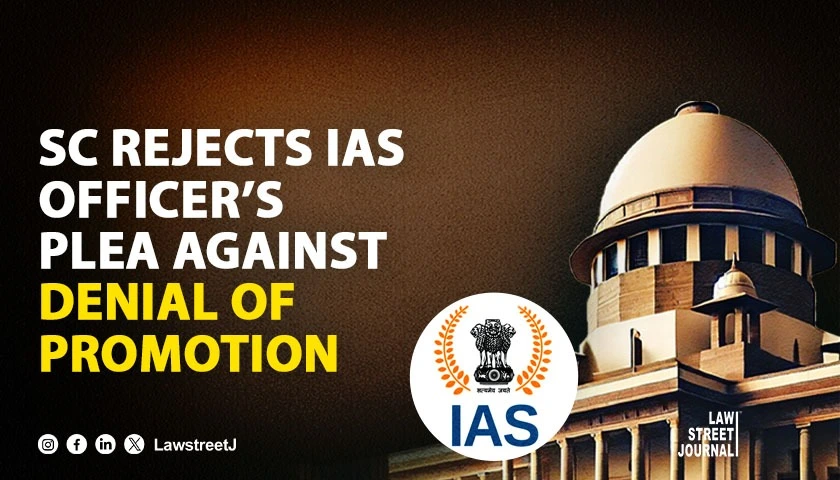NEW DELHI: The Supreme Court has said individual excellence may sometimes lead to superiority complex and hinder commitment to discipline, decorum and collegiality.
A bench of Justices P S Narasimha and Joymalya Bagchi rejected a plea by a senior IAS officer of the 1991-batch against an order, finding him ineligible for the promotion to the post of Kerala's Chief Secretary in 2020.
Opposing the plea, the Kerala government contended even if one ignored the notings in prior ACRs, service records for 2019-20 showed that the appellant had unauthorisedly absented himself for about a year i.e. from March 19, 2019 to March 16, 2020.
It submitted promotion to the highest grade i.e. Chief Secretary grade is a sensitive matter and requires examination of the entire service record.
Keeping in mind the essential requisite of collective leadership in highest echelons of civil service, the committee was justified in giving due weightage to lack of adherence to discipline and collegiality, the court said.
The bench also held the failure to fix benchmark score as per Rule 2 of IAS (Pay) Rules, 2016 cannot be treated as a marker of arbitrariness or discrimination since the appellant was considered as a ‘special case’ though 90% of his ACRs were not available.
"It cannot be said the decision of the committee is either mala fide or so unreasonable that a man of ordinary prudence would not have come to such a conclusion. It may also be relevant to bear in mind that the screening committee decision had not been assailed by appellant," the bench said.
The court also said much water has flown since then. In 2021 as well as 2022, appellant’s case was again considered and rejected by the screening committee. Thereafter, the High Court has again given opportunity to the appellant to approach the authorities concerned for generation of 90% of the ACRs and reconsideration of his case. Given this situation, no case for interference is made out, the bench said, dismissing his appeal.
The court noted the appellant is an IAS officer of the 1991 batch in the Kerala cadre. He has a brilliant academic record and is the seniormost officer of the said batch. He was promoted to the grade of Principal Secretary w.e.f. June 1 2016. The next promotion was to the grade of Chief Secretary. The selection to the Chief Secretary grade is governed by Clause VI of the ‘Principles regarding Promotion of Members of IAS’ as per Note 1 appended to Rule 3(1) of the IAS (Pay) Rules, 2016. The zone of consideration comprises all members of the Service who have completed a tenure of 30 years. The selection is to be made by a screening committee consisting of the Chief Secretary, one officer working in the promotional grade cadre and another officer of the same grade serving in Government of India.
In the case, the bench said, if the service record of the officer post promotion showed a similar trend of lack of discipline or interpersonal skills as reflected in the earlier entries, it may lend assurance to conclusion of the committee that the earlier promotion has not invigorated the officer concerned and he continued to dwell in similar aberrations justifying the denial of further promotion.
The bench found in the case, the review committee had examined the entire service record of appellant and noted that in 2019-20 appellant had absented himself for about a year without justifiable cause.
A show cause notice was also issued in this regard. Subsequently the said period has been treated as ‘non-duty’ i.e. absence without leave.
"This conduct was taken into consideration to deny promotion to appellant to the highest echelon of civil service. It cannot be said that the decision of the review committee was solely based on adverse entries in ACRs/PARs prior to promotion or on uncommunicated observations in the fact finding report," the bench said.
The court held the submission that the review committee looked into additional material and supplied new reasons to justify denial of promotion was erroneous.
In his case, the screening committee convened on December 14, 2020 for assessing suitability of eligible officers of 1991 batch.
Though the appellant was to complete 30 years of service and 90% of his ACRs had not been written, he was assessed along with other eligible officers as a ‘special case’ based on his available ACRs. Upon assessment, the screening committee found him ineligible for promotion.
The decision of the screening committee was subsequently approved by the Council of Ministers.

















